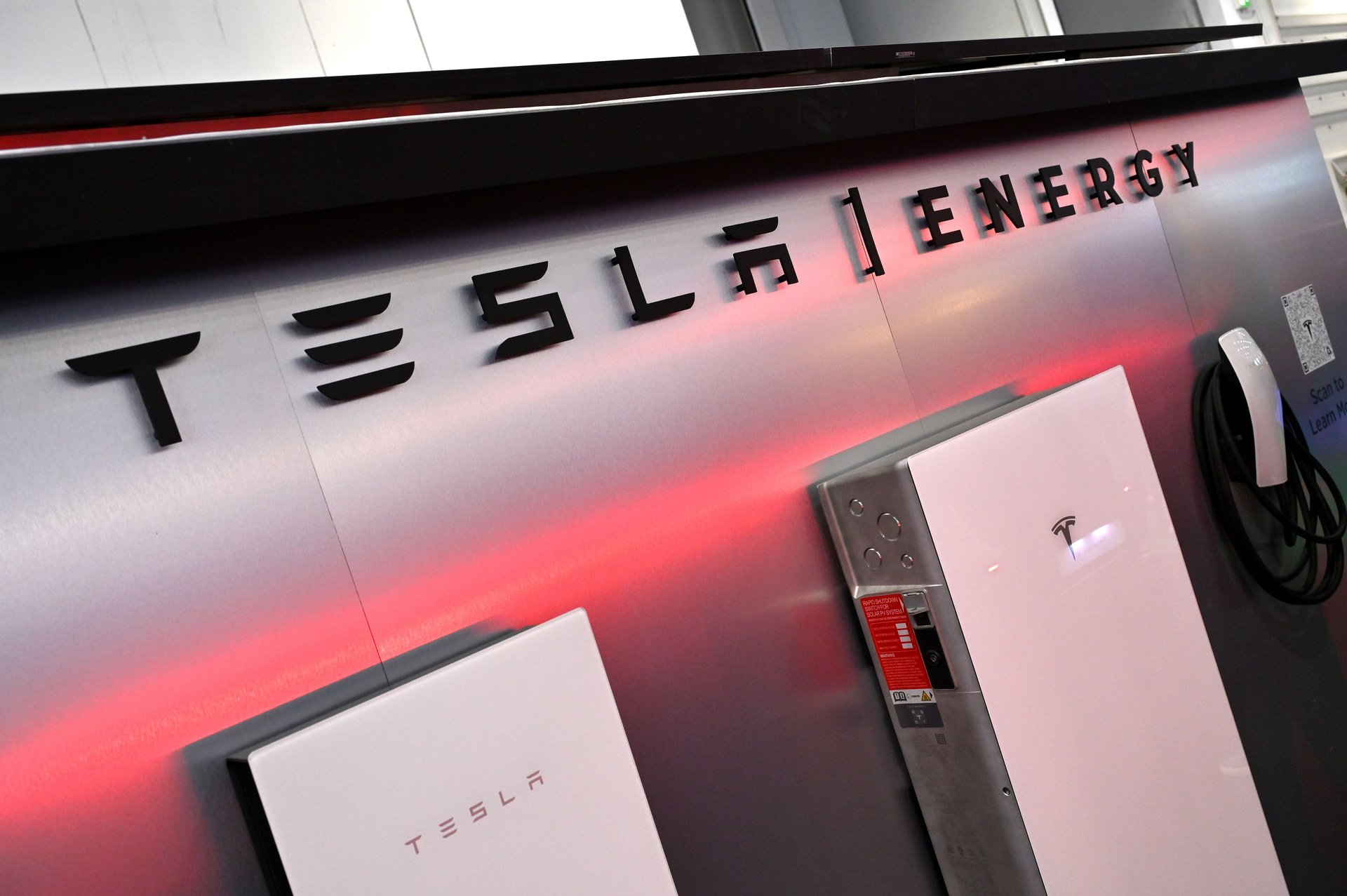Tesla signs $4.3 billion battery deal with LG, cutting back its reliance on China
Tesla’s reportedly signed a three-year, $4.3 billion contract with LG Energy Solution to source U.S.-made batteries, a China tariff workaround.

John Keeble/Getty Images
Tesla’s energy business just got a $4.3 billion jolt from South Korea. The company has reportedly signed a three-year contract with LG Energy Solution to source U.S.-made lithium iron phosphate (LFP) batteries for its energy storage systems, a pivot that, for Tesla, doubles as both a supply chain strategy and a tariff workaround.
Suggested Reading
LG disclosed the $4.3 billion contract on Wednesday without naming Tesla, but sources confirmed to Reuters that the EV-maker was the buyer. LG told Reuters, “In accordance with our agreement, we are unable to disclose the customer’s identity due to confidentiality obligations.” According to LG’s earlier regulatory filing, the batteries will be manufactured in Michigan and delivered between August 2027 and July 2030, with options to extend the deal through 2034 and increase volume.
Related Content
Tesla’s stock rose on the news.
Tesla’s energy storage arm, which posted $2.8 billion in second-quarter revenue earlier this month, is gradually becoming a key pillar of growth — though the business disappointed compared with its first-quarter sales. But the company’s dependence on China, where it has traditionally sourced the majority of the cells for its Powerwall and Megapack systems (largely from CATL), is getting expensive. LFP batteries imported from China are, for now, reportedly subject to a 40.9% tariff, which is expected to jump to 58.4% next year. In Tesla’s first-quarter earnings call, Chief Financial Officer Vaibhav Taneja said tariffs are hitting Tesla’s energy division especially hard, prompting the company to try to secure more U.S.-based capacity.
“The impact of tariffs on the energy business will be outsized since we source LFP battery cells from China,” Taneja said. “We are in the process of commissioning equipment for the local manufacturing of LFP battery cells in the U.S.; however, the equipment which we have can only service a fraction of our total installed capacity.”
Tesla is building an LFP cell facility in Nevada that is slated to come online later this year, but the company has acknowledged that the site will only meet a fraction of expected demand — especially as AI-fueled data center growth drives energy storage system (ESS) orders into overdrive.
The LG supply agreement could cover around 50 gigawatt-hours of battery capacity. LG’s Michigan plant, which began producing LFP cells in May, gives it a rare advantage in the U.S. battery landscape, largely because competitors such as Samsung SDI and SK On are still scaling up. The Tesla deal represents nearly 25% of LG’s annual revenue, according to regulatory filings, and adds the EV-maker to a growing list of major ESS clients — including Delta Electronics, Excelsior Energy Capital, Terra-Gen, and Hanwha Qcells. LG has even floated the idea of converting EV battery lines to meet soaring demand for stationary storage, just as carmakers such as GM, Ford, and even Tesla slow their EV expansion plans.
The LG pact also follows another major South Korean tie-up for Tesla: CEO Elon Musk confirmed a $16.5 billion chip deal with Samsung earlier this week. The chips, built at Samsung’s Texas fab, will power Tesla’s next-gen AI systems, including self-driving cars, humanoid robots, and data center infrastructure. That agreement — like the LG deal — offers Tesla both geopolitical insulation and a head start on U.S. production, just as South Korea races to finalize a trade deal with the U.S. before President new tariffs hit on August 1.
Tesla’s short-term play is clear: secure U.S.-made LFP batteries at scale, sidestep tariffs, and backstop its Nevada production ramp. Longer term, the company is betting that energy storage can help offset slowing vehicle sales and waning federal EV incentives. The business accounted for just over 10% of Tesla’s revenue last quarter, but it’s one of the fastest-growing segments — and one Musk says is still “underappreciated” in terms of scale.
According to Global Market Insights, the U.S. energy storage market is expected to quadruple over the next decade, reaching $305 billion by 2034. Batteries could be the new oil. Tesla just signed a multibillion-dollar lease on the well.
